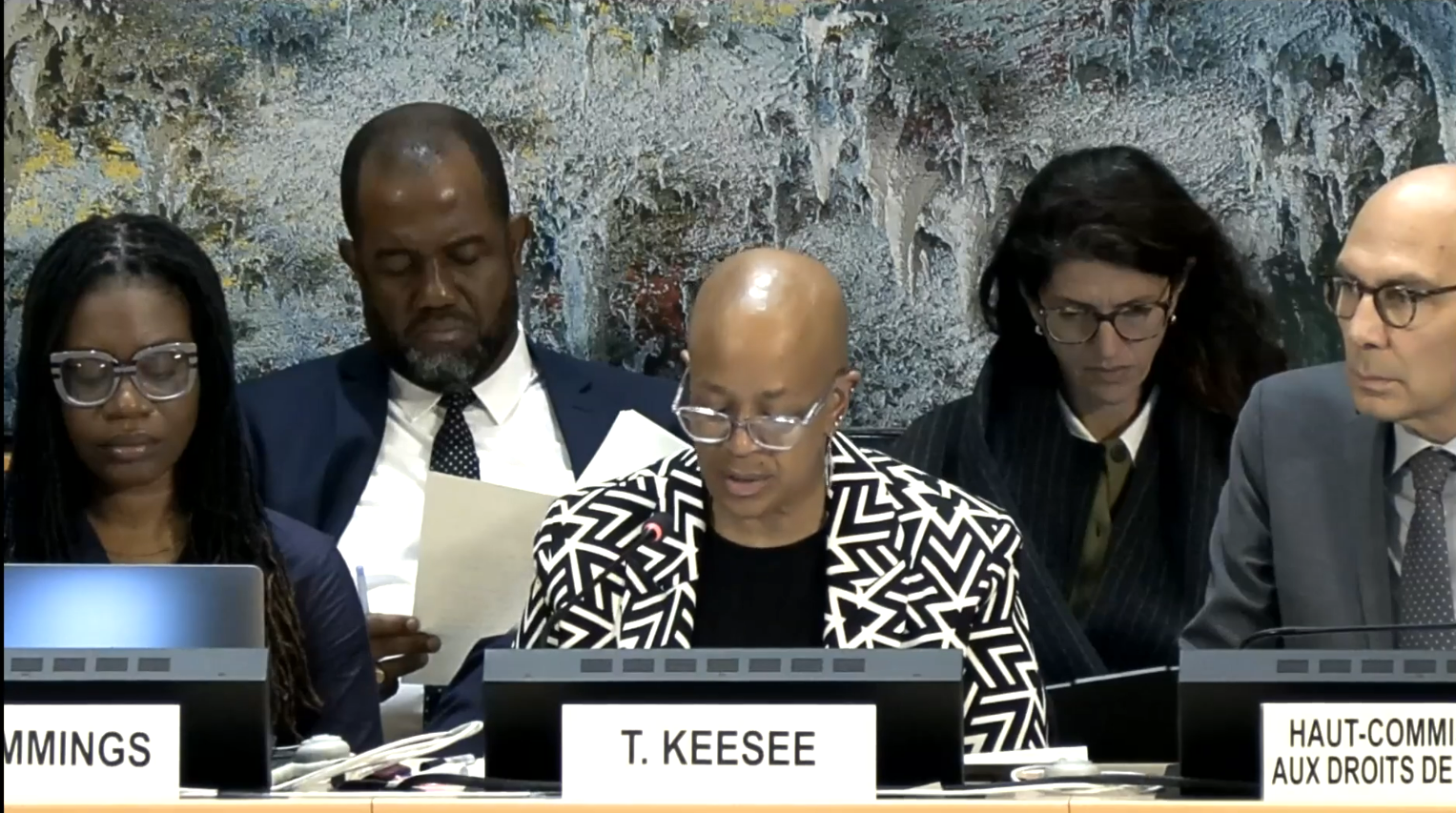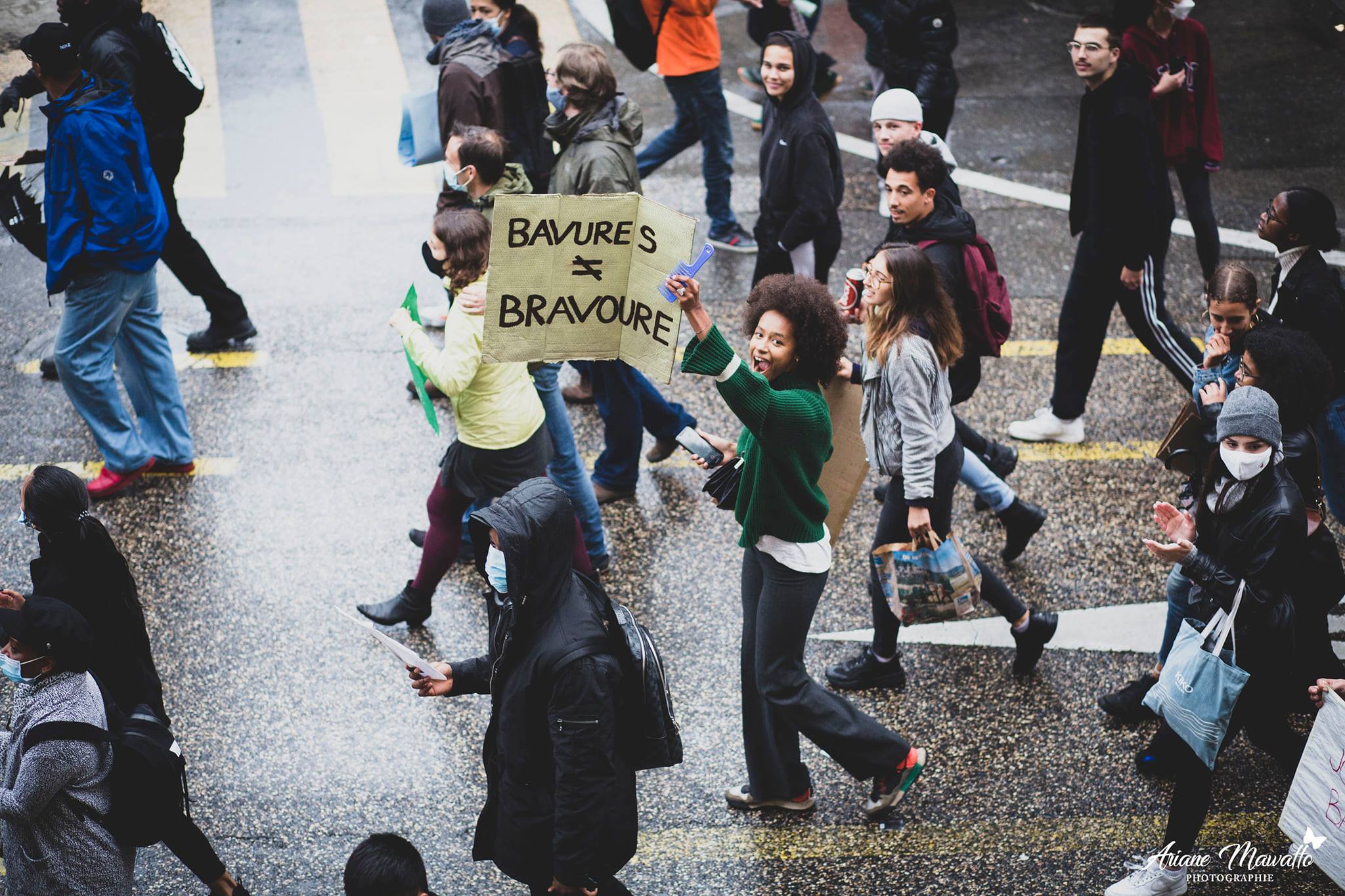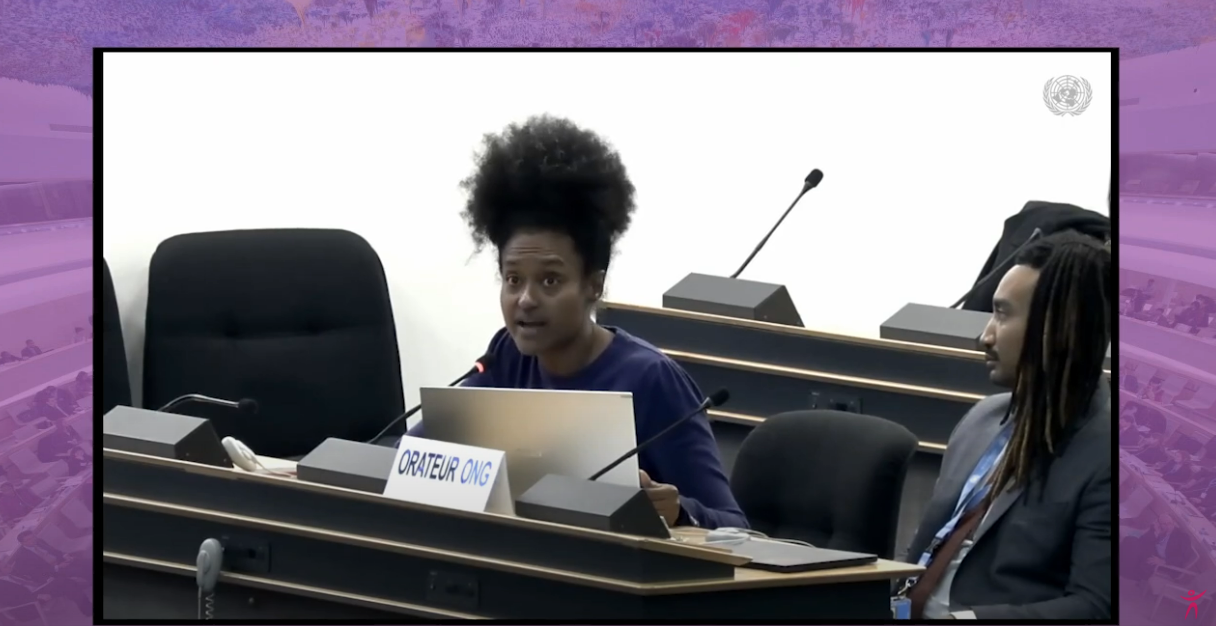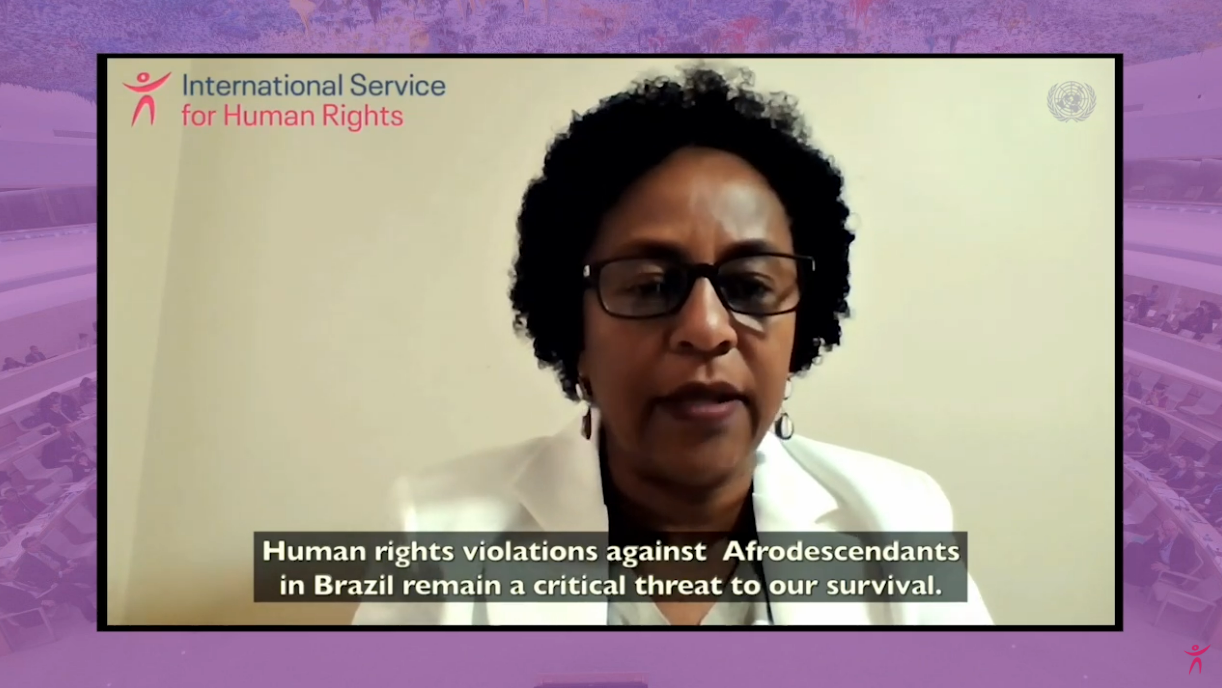
Racial discrimination permeates all layers of the criminal justice system
UN report sheds light on procedural shortcomings in criminal proceedings against African and Afrodescendants.

The right to non-discrimination and the right to life are essential to all societies. At the 45th session of the UN Human Rights Council, ISHR and ten Swiss-based NGOs* called today on Switzerland to ensure accountability in police violence cases.
Lire cet article en français ici
ISHR, together with ten Swiss-based NGOs, delivered a joint statement at the UN Human Rights Council to publicly shed light on and address Switzerland’s record on racially charged police violence. They highlighted to the Council the cases of Hervé Mandundu, Lamin Fatty and Mike Ben Peter, three men of African descent who died at the hands of the police in the past 4 years. The joint statement pointed out that out of these 3 cases, only one gave rise to a trial, that is still to be officially opened at the end of this year.
The statement also highlighted that in other cases of racially charged police violence or other behaviours by the police such as racial profiling, when tried, perpetrators are always acquitted, while victims can find themselves prosecuted under grounds such as refusal to comply with police instructions, as in Mohamed Wa Baile’s case.
The statement called on Switzerland to take a firm stance against police violence by adopting a number of measures such as forbidding dangerous immobilisation techniques (e.g.: belly tackle) and adopting public guidelines on support to victims of such violence. The statement also called on Switzerland to collaborate with local civil society in the elaboration of awareness raising courses on racism for police forces. The organisations called on the High Commissioner to support the recommendations presented to Switzerland.
On 19 June 2020, the Council adopted a resolution following the urgent debate on current racially inspired human rights violations, systemic racism, police brutality and violence against peaceful protesters in the US and elsewhere. The resolution called on the UN High Commissioner to include updates on police brutality against Africans and people of African descent in all her oral updates to the Council.
The resolution also tasked the High Commissioner to prepare a report on systemic racism and police brutality, especially those incidents that resulted in the death of George Floyd and of other Africans and people of African descent, as well as government responses to anti-racism peaceful protests. The High Commissioner will provide her first oral update on the report on 30 September.
ISHR joined 144 families of victims of police violence and over 360 civil society organisations to endorse this letter sent on 3 August to the UN High Commissioner, detailing expectations from the report and the process for its preparation, including an ‘inclusive outreach to communities of colour and the creation of meaningful, safe, and accessible opportunities for consultation’. On 19 August 2020, the High Commissioner responded to the letter.
Signatories to the joint statement: Service International pour les droits de l’Homme; Collectif Afro Swiss; Kataliko actions for Africa-KAF; Collectif Faîtes des Vagues; Dignité Impact – Dignity Impact; Collectif Amani; Sankofa – platform for people of African Heritage; Traditions et Médicine T&M; Bla*sh; Association A Qui Le Tour; Sillage Association
Watch the statement here:
Photo:Ariane Mawaffo Photography
Contact: Fanny Toutou-Mpondo: [email protected]; and Salma El Hosseiny: [email protected]

UN report sheds light on procedural shortcomings in criminal proceedings against African and Afrodescendants.

The Office of the High Commissioner for Human Rights (OHCHR)'s report on reparatory justice recognises that reparations are necessary to dismantle systemic racism.

In the context of the presentation of a UN report on reparations, ISHR and Coalizão Negra por Direitos (CND) issued a joint statement urging States to fully implement the Durban Declaration and Programme of Action (DDPA), the UN’s blueprint to combat racism, racial discrimination, xenophobia and related intolerance globally.